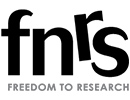Richard Thaler, Nobel Laureate
14.10.2017Receiving the news that Richard Thaler received the Nobel award in economics was great satisfaction to me. Reflecting upon the history of Nobel awards, there is a consistent tendency to choose economists with strong cross-disciplinary leanings, often alternating with economists who focus on the more mainstream mathematical models (such as last year, Hart and Bengstroem). In my files of hard copies that I made as a PhD student, there is the the JEP collection on ‘Anomalies’ written by Thaler in the early days of his relentless effort of developing behavioural economists. Thaler has been a central figure in re-introducing psychology into economics. His contributions are essential for the INSOSCI project.
Thaler was also elected president of the American Economic Association. His speech, published in 2016, is an overview of the field. I think it would come close to his Nobel speech that he is now busy with preparing. If we look at this paper, however, we realize that behavioural economics is still unfinished business. Granted, this is true for all research, but I think it matters much in this context. The simple fact is that until today, behavioural economics does not offer a systematic and comprehensive theory that would explain the zoo of special effects and anomalies of rationality that make up the accumulated body of knowledge in the field. Thaler lauds this as ‘evidence based economics’: But evidence alone does not lead to theories. This has been established in philosophy of science for long: Only new theories that explain evidence supposedly falsifying established theories can supersede them. In his paper, Thaler just enumerates several potential building blocks, such as dual-systems theories (well known to the readers of my blogs), social preferences, or biased beliefs. Blogging allows to be blunt: All these are not theoretical hypotheses, but just abstract re-descriptions of the evidence – if people appear to be more altruistic than standard notions of rationality would predict, call it ‘social preference’ and measure it. The delicate point here is: You measure your evidence in terms of the distance to what the standard theory defines as ‘rational’. In other words, the observational language that underlies behavioural economics remains that of standard economics, on a deep conceptual level. Hence, behavioural economics still appears to be the science of human failure, but does not offer explanations of why we fail – and even worse, there is no convincing argument why our observed behaviour is a failure at all.
Therefore, even though I think that Richard Thaler rightly deserves the Nobel Award, I do not think that the standards of this award (which was not initially included in the Nobel awards sponsored by Nobel himself) correspond to the standards in physics or chemistry. Many critics of the Nobel Award in economics have pointed out that mostly scholars are awarded who, after decades of work and debates, got recognition in the community of economists. This is not the same as a breakthrough discovery or radical new theory which becomes the cornerstone of our understanding of the real world, as we know it. Behavioural economics has become an important contributor to policy design, and Thaler is famous for the concept of ‘nudging’. But there are also many controversies whether this approach is compatible with our conceptions of democratic and liberal societies. The problem of standards of the award is not a problem of the work of the Nobel Committee, but of economics as a science. There are no reliable criteria of determining whether a new research result is a breakthrough in the moment when it happens – as with the many anomalies that Thaler collected decades ago in the JEP column. You need to wait until the community of economists somehow develops a consensus on recognizing the work of a scholar – but that does not mean that everybody agrees with her or him! I think that this impossible in the case of Nobel awards in the sciences, where universal agreement and recognition seems an essential requirement.
Thaler, Richard H. „Behavioral Economics: Past, Present, and Future“. American Economic Review 106, No. 7 (July 2016): 1577–1600. doi:10.1257/aer.106.7.15







